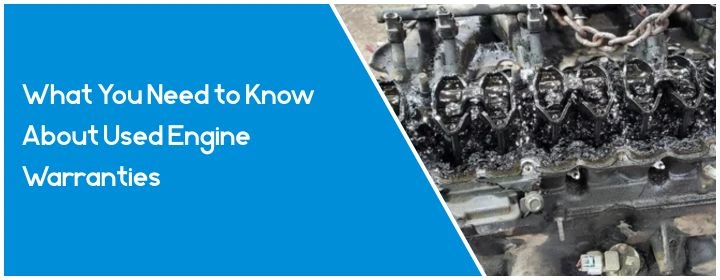
What You Need to Know About Warranty Engines?
You need to understand the warranty terms, when purchasing a warranty engines. A warranty is a promise from the seller or manufacturer to repair or replace an engine, if it fails within a specified period. It provides financial protection, reliability and gives peace of mind to buyer in investing high-value components like the engine. Here in this guide, we will explain the key points about warranty; so, you can make a wise decision and avoid unnecessary surprises.
What Exactly Is a Warranty?
Warranty is basically a documented agreement which guarantees that the product will perform smooth at least for certain period or mileage. It means if the engine had any issue which is covered under the warranty engine terms then the seller have to repair or replace the part without charging any additional cost from the buyer. There are different types of warranties and knowing the difference will help you to choose the right coverage:
- Manufacturer’s Warranty: It is offered by the engine manufacturers which covers the factory defects.
- Extended Warranty: It is an optional coverage which extends the warranty beyond the standard warranty period with extra pay.
- Used Engine Warranty: This is provided by sellers of used engines which cover the limited parts and labor for a particular period or mileage.
Why Warranties Are Important for Engines
Engine is the most expensive vehicle component. Any major failure with engine will cost you thousands of dollars for repairing without a warranty. Engines with a warranty protect the buyers from unexpected expenses. It also reflects the confidence of the seller in their product’s quality.
Benefits of Warranty Engines:
- Financial protection against costly repairs.
- Assurance of quality from the seller.
- Resale value of your vehicle increases.
- Offers peace of mind, when buying used or remanufactured engines.
What Is Typically Covered?
Coverage varies on seller and warranty type. However, most warranty engines cover:
- Engine block and internal components
- Cylinder heads and valves
- Timing gears and chains
- Oil pumps and related internal lubricated parts
Common Exclusions
- Damage caused by poor maintenance or negligence
- Overheating due to coolant leaks or failed external parts
- Modifications or aftermarket performance enhancements
- Improper installation or use of non-approved fluids
You must read all the terms carefully before buying used engine. It prevents you from unexpected surprise when filing a warranty claim.
Points to Consider in Engine Warranties
Look for these key points, when you are reviewing a warranty:
- Duration: Coverage period
- Labor Inclusion: Whether labor costs are included or only parts are covered.
- Claim Procedure: Note down the steps for filing a claim.
- Transferability: Make sure to confirm that the warranty is transferrable, in case you sell the vehicle.
- Maintenance Requirements: Most of the warranty requires a proof of regular oil changes and maintenance of the engine.
How to Ensure Warranty Validity
Buying warranty engines comes with conditions which you must meet to keep coverage valid:
- Keep Records: You need to keep a record of regular maintenance.
- Use Approved Shops: Make sure the engine is installed by certified mechanic.
- Register Your Warranty: After receiving the engine, you have to register a warranty within a given period.
If you failed to meet these conditions; it can void your warranty which will leave you unprotected.
Tips When Buying Warranty Engines
- Read the Fine Print: Understand what is covered and excluded.
- Compare Different Sellers: Not all warranties are equal; some cover labor and towing, others don’t.
- Check for Nationwide Coverage: Make sure you can claim repairs from anywhere, whether you move or relocate.
- Ask about Refunds or Replacements: Some of the warranties only cover repairs and some may replace the entire engine.
When to Claim the Warranty?
You must file a claim instantly, if you notice any strange noise, drop-in performance, fuel-efficiency issue or check engine warnings. Waiting and delaying will make the problem more worse which makes it harder for you to prove that the damage wasn’t due to neglect.
Conclusion
From the above gist, we conclude that it important to understand the warranty before buying warranty engines. The warranty ensures that you get the protection you are paying for. It gives the confidence in your investment and protects you from unexpected expenses. To claim the warranty, you must review the coverage, follow the maintenance guidelines and keep the service record. Engine warranty can turn out to be a secure and value-driven purchase, if used properly.
